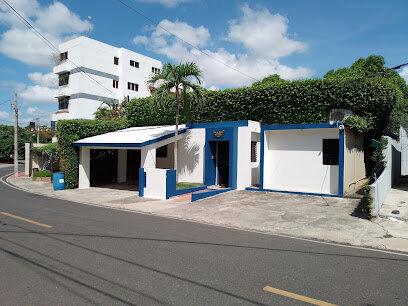Best Social Security Lawyers in Dominican Republic
Share your needs with us, get contacted by law firms.
Free. Takes 2 min.
Or refine your search by selecting a city:
List of the best lawyers in Dominican Republic
About Social Security Law in Dominican Republic
The Social Security System in the Dominican Republic is a comprehensive framework designed to provide social protection to its citizens. Established under Law 87-01, the system covers health insurance, pensions, and occupational risk insurance. Its main goal is to ensure that all Dominicans and residents have access to basic welfare services and protection against common life risks such as illness, disability, old age, and death. The system is funded through mandatory contributions from employers, employees, and the state, and managed by several governmental and private bodies.
Why You May Need a Lawyer
Individuals may need legal assistance in dealing with Social Security issues for various reasons. Common situations include disputes over eligibility for benefits, challenges in calculation and awarding of pensions, denial of health insurance claims, and complications related to occupational risk coverage. A lawyer specializing in Social Security can help navigate the complex legal framework, negotiate with relevant institutions, and ensure that individuals receive the benefits and coverage they are entitled to. Moreover, legal assistance may be necessary if one needs to file an appeal against a decision made by the Social Security administration.
Local Laws Overview
The law governing Social Security in the Dominican Republic is Law 87-01. This law outlines the structure and objectives of the Social Security System, detailing the rights and obligations of employers, employees, and the government. Key aspects include the establishment of three main subsystems: Health, Pensions, and Occupational Risks. The law mandates specific contribution rates for both employers and employees and sets standards for benefits coverage and delivery. It also establishes the National Social Security Council (CNSS) as the governing body overseeing the system's implementation and compliance.
Frequently Asked Questions
What is covered under Social Security in the Dominican Republic?
Social Security in the Dominican Republic covers health insurance, pensions, and protection against occupational risks such as accidents and diseases related to the workplace.
Who is eligible for Social Security benefits?
All employed individuals, including both Dominican citizens and legal residents, who make the necessary contributions are eligible for Social Security benefits. Self-employed individuals can also join the system voluntarily.
How are contributions calculated?
Contributions are calculated as a percentage of the employee's wages. Employers and employees both contribute to the system, with specific rates for health coverage, pensions, and occupational risks.
How can I apply for a pension under Social Security?
To apply for a pension, you must contact your pension fund administrator (AFP) with the required documentation, including identification and employment history. The AFP will guide you through the application process.
What should I do if my Social Security claim is denied?
If your claim is denied, you have the right to appeal the decision. It's recommended to seek legal advice to understand the appeal process and improve the chances of a successful outcome.
Can I continue to receive Social Security benefits if I move abroad?
Generally, pension benefits can be transferred abroad, but health benefits are limited to national coverage. It's advisable to check with your specific AFP for detailed information.
What is the role of the National Social Security Council (CNSS)?
The CNSS is responsible for overseeing the implementation of the Social Security System, ensuring compliance with the law, and resolving disputes that arise within the system.
Are Social Security benefits taxable?
No, Social Security benefits are not subject to income tax in the Dominican Republic.
What is the minimum retirement age for pensions?
The minimum retirement age for a full pension is 60 years, with at least 30 years of contributions.
How does the system handle occupational risks?
Occupational risk insurance provides coverage for work-related injuries and diseases, offering medical care, rehabilitation, and compensation depending on the case.
Additional Resources
For assistance, individuals can contact the Dominican Institute of Social Security (IDSS) or the Treasury of Social Security (TSS). There are also advocacy groups and legal aid organizations that offer guidance and support regarding Social Security issues.
Next Steps
If you need legal assistance with Social Security issues, it's essential to gather all relevant documents, including employment records and previous communications with Social Security institutions. Contact a lawyer specializing in Social Security law or visit a legal aid organization. They can help assess your situation, advise on the best course of action, and represent you in legal proceedings if necessary.
Lawzana helps you find the best lawyers and law firms in Dominican Republic through a curated and pre-screened list of qualified legal professionals. Our platform offers rankings and detailed profiles of attorneys and law firms, allowing you to compare based on practice areas, including Social Security, experience, and client feedback.
Each profile includes a description of the firm's areas of practice, client reviews, team members and partners, year of establishment, spoken languages, office locations, contact information, social media presence, and any published articles or resources. Most firms on our platform speak English and are experienced in both local and international legal matters.
Get a quote from top-rated law firms in Dominican Republic — quickly, securely, and without unnecessary hassle.
Disclaimer:
The information provided on this page is for general informational purposes only and does not constitute legal advice. While we strive to ensure the accuracy and relevance of the content, legal information may change over time, and interpretations of the law can vary. You should always consult with a qualified legal professional for advice specific to your situation.
We disclaim all liability for actions taken or not taken based on the content of this page. If you believe any information is incorrect or outdated, please contact us, and we will review and update it where appropriate.
Browse social security law firms by city in Dominican Republic
Refine your search by selecting a city.














